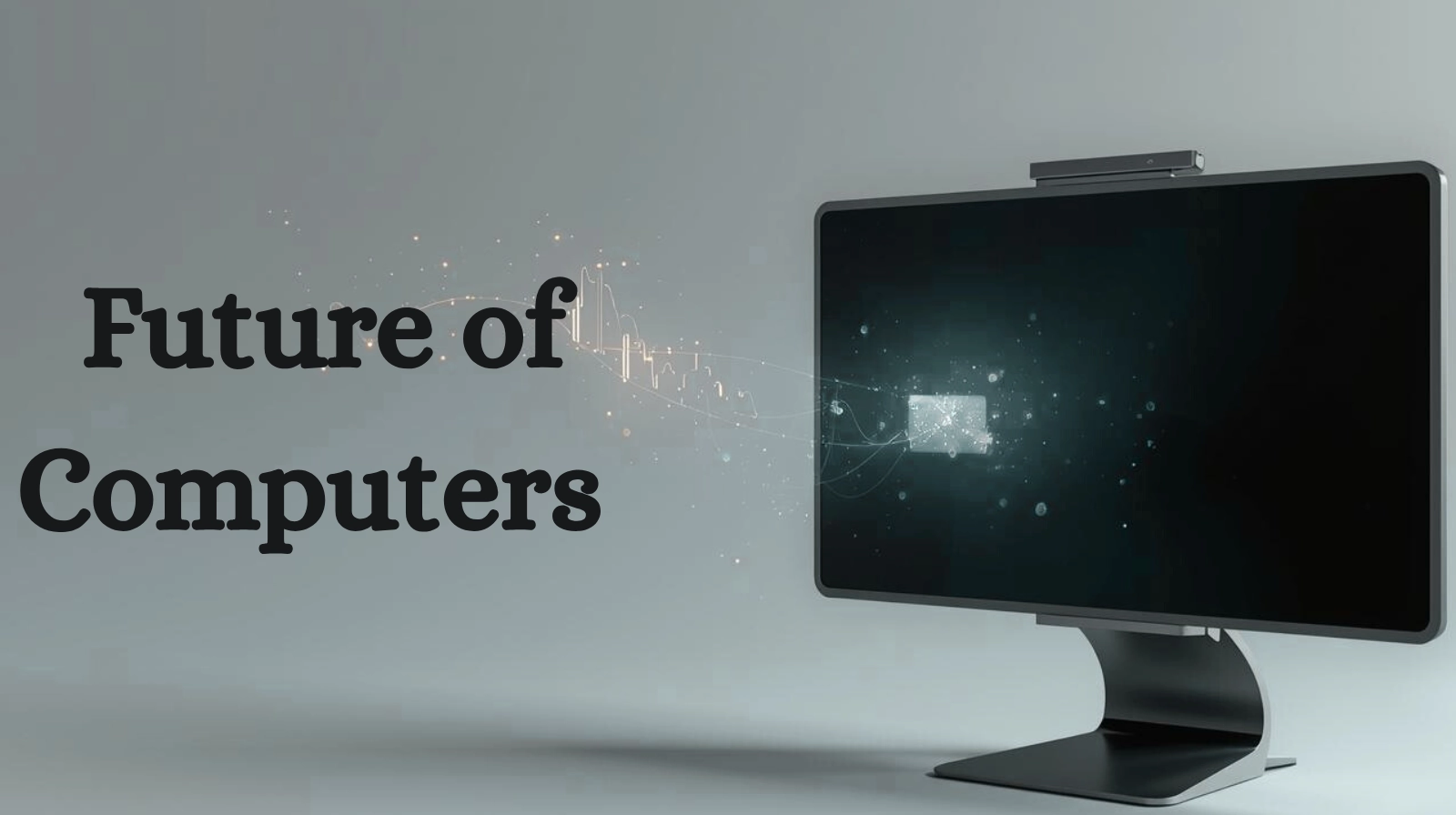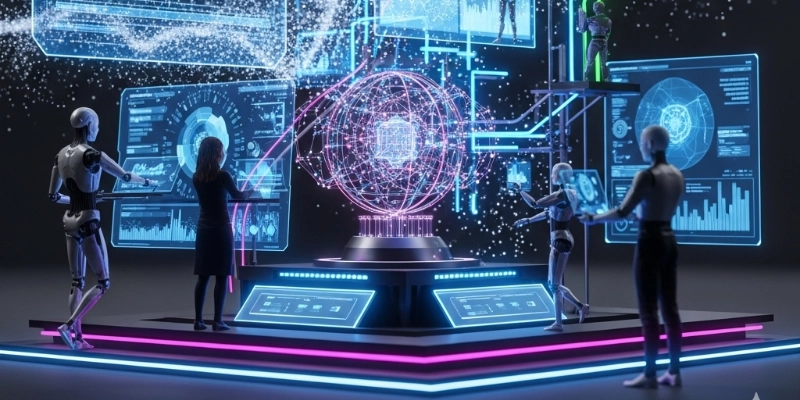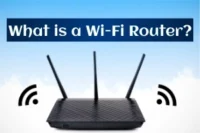Explore the Future of Computers and Smart Technology
Published: 17 Sep 2025
Computers have changed our world in just a few decades. Once they were huge machines, but now we use slim laptops and even smartphones every day.
And the journey is not stopping here. The future of computers will be faster, smarter, and more powerful.

In this article, we will look at the future of computers, explore next-generation technologies, and see what the future of computer technology might bring.
Evolution of Computers
The story of computers is full of big changes. At first, we had large mainframes that filled entire rooms. Later, desktops brought computers into homes, laptops made them portable, and smartphones put them in our pockets.
This evolution of computers shows how quickly technology improves. Each step made them faster, smaller, and easier to use. The history of computers leading to future progress helps us see one thing clearly: the journey is not slowing down, and the best is yet to come.
Future of Computers
When we talk about the future of computing, we mean how computers will grow smarter, faster, and more connected in the years to come. It’s not only about new gadgets, but also about how these changes will touch daily life, business, and society.
The main drivers behind this change are artificial intelligence, hardware innovation, cloud systems, and the Internet of Things (IoT). These forces will push computer future technology to levels we can only begin to imagine today.
The coming decades will be revolutionary, with computers becoming more powerful, more helpful, and more deeply linked to everything we do.
Future of Computer Hardware
The computer hardware future looks more exciting than ever. New technologies are pushing computers to become faster, smarter, and more eco-friendly. Let’s take a look at some major changes coming soon.
- Quantum Computers:
The quantum computing future will bring machines that can solve problems in seconds, which would take today’s computers years. They will help in science, medicine, and big data analysis. - Smaller, More Powerful Chips:
Thanks to nanotechnology and next-generation processors like 3nm chips, computers will be smaller in size but much stronger in power. - Better Storage Solutions:
Future storage may not just be hard drives. Scientists are working on DNA storage and cloud-based memory that can hold huge amounts of data safely. - Energy-Efficient Designs:
Eco-friendly computers will use less power while giving better performance, making them both smart and kind to the planet.
Future of Computer Software
The future computer software world is moving fast, bringing smarter, safer, and more creative tools. From learning machines to cloud platforms, software will play a bigger role in every part of life. Let’s explore some key changes we can expect.
- AI Software:
The rise of AI software will give us self-learning programs that can make decisions, solve problems, and even improve themselves without human help. This will change industries like healthcare, education, and business. - Cloud Computing Future:
The cloud computing future will replace many traditional apps. People will use cloud platforms for work, storage, and entertainment, making software easier to access from anywhere in the world. - Virtual & Augmented Reality:
VR and AR software will create immersive experiences. From classrooms to workplaces, these tools will make learning and collaboration more engaging and realistic. - Cybersecurity Tools:
As threats grow more advanced, cybersecurity-focused software will become vital. Smarter programs will protect personal data, businesses, and even governments from digital attacks.
Artificial Intelligence and Computers of the Future
The link between AI and future computers will shape how we live and work in the coming decades. Smarter machines will not only follow commands but also think, learn, and adapt like humans.

Let’s see what this means.
- Smarter AI Assistants:
Future assistants will be more than simple chatbots. With artificial intelligence in computers, these programs will understand context, emotions, and complex tasks, making life easier at home, school, and work. - AI in Different Fields:
From business to education to medicine, AI-powered computers will bring big changes. They will help doctors find diseases faster, make learning more personal for students, and guide companies to smarter decisions. - Risks and Opportunities:
While AI and future computers bring many benefits, they also raise risks. Privacy concerns, job changes, and over-reliance on machines are real challenges. But with the right balance, the opportunities can outweigh the dangers.
Internet of Things (IoT)
The world of IoT future computers is bringing technology into every part of our daily lives. From homes to cities, smart computer technology will connect devices and make them work together in real time. Let’s take a closer look.
- Computers in Every Device:
Future machines won’t just be desktops or laptops. Cars, fridges, and even homes will have built-in systems powered by connected devices, making life more comfortable and efficient. - Real-Time Decisions:
With the help of IoT, computers will process data instantly. This means smart computer technology can guide traffic, save energy, and even improve healthcare without delay. - Smart Cities and Lifestyles:
The rise of IoT future computers will build smart cities where transportation, energy, and security are all connected. People will enjoy safer, greener, and more convenient lifestyles.
Cloud & Edge Computing
The cloud computing future is becoming the backbone of modern technology, while the edge computing future is bringing speed and instant access closer to users. Together, they will change how we store, process, and use data every day.
- Cloud as the Backbone:
In the cloud computing future, most apps, files, and tools will live online instead of on personal devices. This means people and businesses can access data anytime, anywhere, with more security and flexibility. - Edge for Instant Processing:
The edge computing future focuses on processing data right where it is created, like in phones, cars, or sensors. This reduces delays and makes real-time actions possible, from self-driving cars to smart healthcare devices. - Impact on Life and Business:
When cloud and edge work together, businesses will run faster, homes will be smarter, and cities will be more efficient. This mix of global storage and local speed is the future of computing.
The Future of Computers in Daily Life
The future use of computers will touch every part of our daily routines. From learning and healthcare to work and entertainment, computers in daily life will make tasks easier, smarter, and more connected. Let’s see how.
- Education:
Virtual classrooms and AI tutors will guide students at their own pace, making learning more personal and engaging. - Healthcare:
Doctors will use smart systems for quick diagnosis and patient monitoring, improving care and saving lives. - Work:
Automation and AI will power remote jobs, giving people more flexible ways to work from anywhere in the world. - Entertainment:
The future use of computers will bring 3D movies, immersive gaming, and VR, making fun more interactive than ever before. - Transportation:
Driverless cars and smart traffic systems will make travel safer, faster, and less stressful.
Challenges in the Future of Computers
While the future looks bright, there are also serious challenges in future computers that we must consider. Along with progress, the disadvantages of future technology may bring new risks and concerns.
- Cybersecurity Risks:
As computers get smarter, hackers also become more powerful. Protecting systems from cyberattacks will be a constant battle. - High Costs:
Advanced systems may not be affordable for everyone. This gap could limit access to the latest technology. - Privacy Issues:
With more data being collected, the misuse of personal information is a major worry for both individuals and businesses. - Over-Dependence:
Relying too much on machines could cause a decline in human skills and problem-solving abilities.
Conclusion
The future of computers is set to be faster, smarter, and more connected than ever before. The future technology will bring amazing opportunities in education, healthcare, work, and daily life, but also challenges like privacy risks and over-dependence.
To keep up, we must stay open to learning and ready to adapt. The future of computers is not just about new machines, but about how we use them to improve our world.
The future of computer technology is about creating smarter, faster, and more connected systems that will transform how we live and work. From artificial intelligence to quantum computing, these advances will bring new opportunities while also posing challenges like privacy and security.
In the future, computers will be smaller, faster, and far more intelligent, working like human assistants to solve problems quickly. They will be deeply connected to daily life through AI, cloud systems, and smart devices, making tasks easier and more efficient.
The future holds powerful advances for computers, with technologies like AI, quantum computing, and IoT shaping everyday life. These changes will make computers more intelligent and connected, creating new possibilities in work, healthcare, education, and entertainment.
AI will not replace traditional computers but will become an important part of them. Instead of working alone, AI will enhance computers by making them smarter, faster, and more capable of handling complex tasks.
AI will not replace traditional computers; instead, it will work within them to make them more powerful. Traditional hardware will still be needed, but AI will enhance how computers think, learn, and solve problems.
Quantum computing is a new type of computing that uses quantum bits, or qubits, instead of regular bits to process information. This allows computers to solve very complex problems much faster than traditional machines, especially in science, medicine, and data analysis.
Yes, future computers will be both faster and smaller thanks to advanced processors, nanotechnology, and new storage methods. They will deliver more power in compact designs, making them easier to carry while handling complex tasks quickly.

- Be Respectful
- Stay Relevant
- Stay Positive
- True Feedback
- Encourage Discussion
- Avoid Spamming
- No Fake News
- Don't Copy-Paste
- No Personal Attacks

- Be Respectful
- Stay Relevant
- Stay Positive
- True Feedback
- Encourage Discussion
- Avoid Spamming
- No Fake News
- Don't Copy-Paste
- No Personal Attacks





